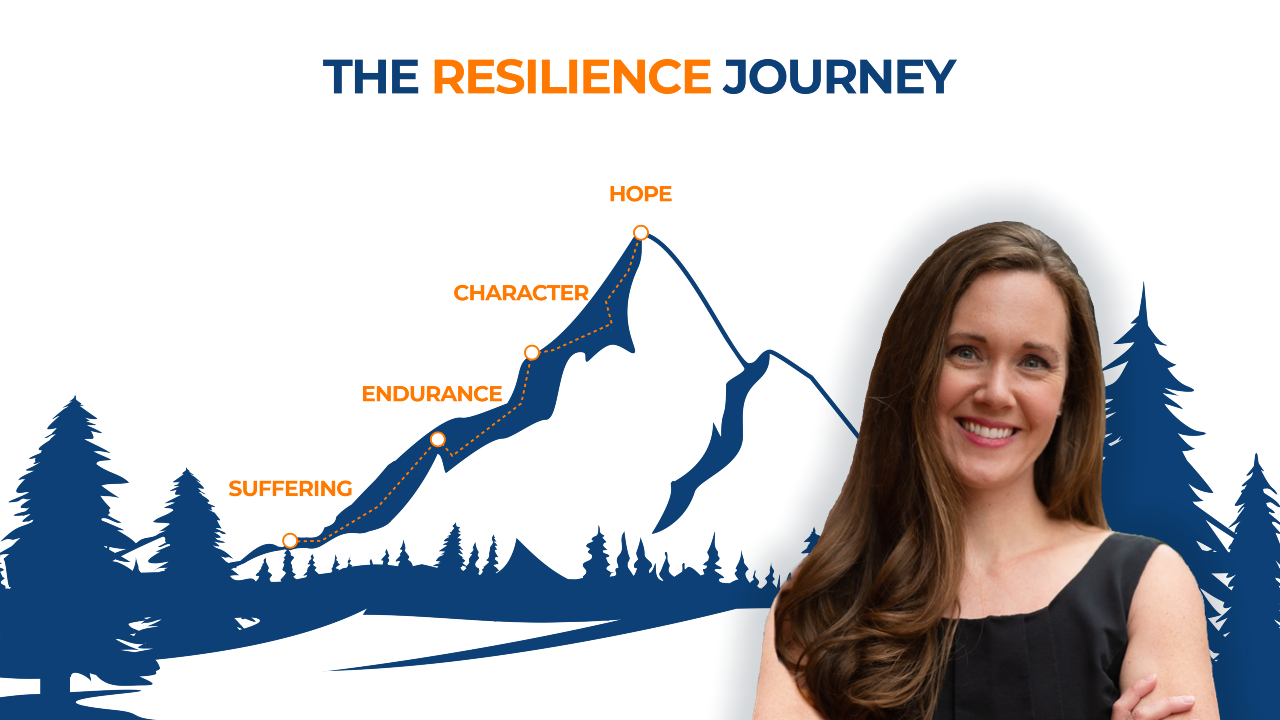If you’ve been around for a while, you might remember my previous blogs and videos highlighting Kelly Plawinski’s expertise. As the COO and EOS Integrator of Adamy Valuation, Kelly has a wide variety of leadership experience and has faced her fair share of challenges that required substantial resilience.
In a recent blog I posed a few questions about what makes an individual or organization “resilient,” and I’d love to share Kelly’s answer with you. I hope you find her insights as valuable as I did.
How would you define resilience?
To me, resilience is the ability to remain calm and collected amidst choppy waters.
When you assess resilience in others – what do you look for?
I’ve found that people who are steady, calm, and confident in their decisions are the most resilient.
When you assess resilience in organizations – what do you look for?
I want to see consistency, thoughtfulness, quality, and effective communication on every level of the organization.
What person in your life would you hold up as being resilience personified?
My husband, Todd. Those who have the pleasure of knowing him know that he’s unflappable. Regardless of the situation he stays steady and calm and never reacts with a quick decision or thought. Most families have a “rock”, the one that people go to for a solid opinion or guidance. Todd is that for my extended family as well as our family at home. No matter what life throws at us (like a flooded basement during spring break) he always remains calm and methodically works to solve the problem.
In your own leadership journey – what has been a key resilience-building event? In hindsight, how did it build your resilience capacity?
My first job out of college was working in the controller’s office at an auto assembly plant in a Detroit suburb. I would walk the plant floor often for various reasons. One day I walked by the engine line and was cat called by a few of the guys working on the line. Of course I was a bit shaken by the experience at the time.
At that point I’d been at the plant for a while and had built up a solid reputation with the various area managers who oversaw each part of the line. I decided to tell one of them what happened. I don’t remember the discussion being a big deal, and at the time I sure didn’t think I’d reflect on it nearly 20 years later. But looking back, I think that event played a part in my confidence to always speak up and say something when I see something as well as my resilience.
That leader’s ability to listen to me in a respectful way and address the issue gave me the confidence to continue speaking up. I also think it increased my resilience as I saw that others around me were there to support me. In hindsight, it could have gone very differently. The leader could have laughed at me. He could have sided with the guys on his team and said it never happened, but he didn’t. He listened and reacted professionally and appropriately. That guy was a great leader and I’m sure has no idea the impact he had on me. Heck, even I didn’t realize it at the time!
In your organization – what has been a key resilience-building event? In hindsight, how did it build your organizational resilience?
I tried to come up with something more original, but it’s COVID. COVID impacted nearly every single person on this planet in some way or another, and it’s nearly impossible to overlook the impact it had.
At the base of Maslow’s Hierarchy of Needs is physiological needs followed by safety. Those both vanished for many people in March of 2020. This left many feeling scared and unsure of the future. Similarly, the bottom of the Lencioni Trust Pyramid is (as you might expect) trust. Without trust, you can’t make your way up the pyramid to achieve results. Given that our team members were likely feeling scared and unsure of the future given the pandemic, I had to make sure that our team didn’t lose trust in me and Nick as leaders, nor in the stability of our company.
On December 5, 2019 we rolled EOS out to our entire organization after implementing it at the leadership level a few months earlier. Dates don’t usually stick in my head, but this one does. I think it’s because EOS has had such a profound impact on our organization and my leadership journey. It combines the best of the best tools and methods for running an organized company while keeping everyone on the same page.
Looking back, had we not rolled out EOS prior to COVID, I’m not sure we would have fared the same. I’m sure our firm would have survived, but we came out of COVID stronger than when we went in. That’s due to EOS and the rigor and intentionality of the process.
It gave us a rulebook to follow when it seemed all that we knew was being pulled out from under us. The office, closed. Client meetings, virtual. Social gatherings, non-existent. The world as we knew it was very, very different. But the EOS process could remain the same, so we all leaned in and we are stronger because of it.
The leadership we showed during COVID helped us maintain that level of trust. Did we know all of the answers? Of course not. But we were authentic and real and we communicated with our team frequently and genuinely. As leaders we don’t get to choose when we’re thrown off the deep end into a messy situation, but I believe what sets us apart as leaders is our resilience in the face of stormy waters.
How is your resilience (personal or organizational) being tested today? What is one past lesson that is coming in helping you meet the challenge?
As we continue to intentionally grow our firm we need to hire experts in markets outside of Grand Rapids. Because what we do is very niche, finding these experts is hard enough, let alone finding someone who is looking for change and who fits our culture. This is no easy task and one we have been working on for a while now.
We are making good headway but it feels at times like we’re looking for a needle in a haystack. It’s easy to get defeated when you need something to work that is largely out of your control and recruiting can feel that way. What we need to remind ourselves is that it will work out, it always does. The answer might not come in the exact way we imagined it, but it will come. We just have to be patient and keep working toward the end goal.
What is a challenge/test you are facing that you are not sure how to handle?
The introduction of AI and what it means to our profession is clearly something to be aware of. At this point, it’s anyone’s guess where it will head, but we’re paying attention to it for sure.
Also, we’re all-in on adopting hybrid/remote work, but there are many challenges small employers have to work through when having employees in various states. We have to incorporate and pay income taxes in every state where we have people, we have to decide what sort of stipend we will offer for home office furnishings, we have to contemplate whether we pay for travel when employees travel to our home office, etc.
While it seems as simple as opening your laptop in a new city to some, there are a lot of questions and details that aren’t widely understood when it comes to employees moving to take advantage of hybrid or remote work. We know this topic isn’t going away anytime soon, so we are doing our best to adapt and support our team at the same time.

